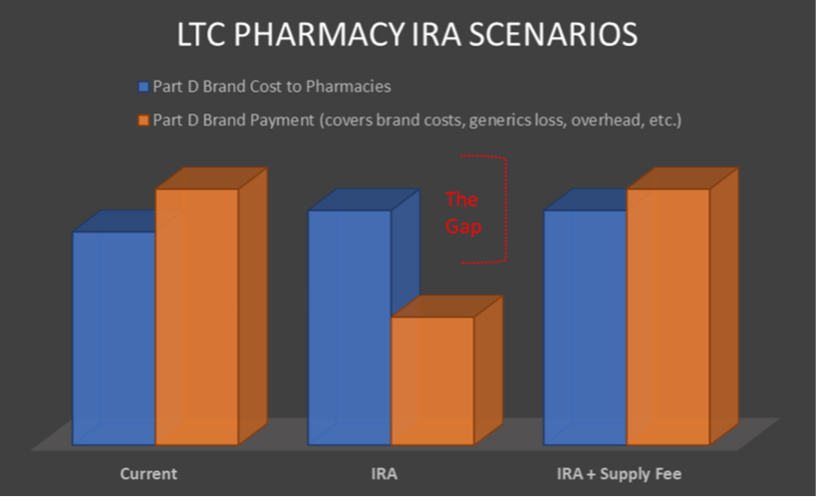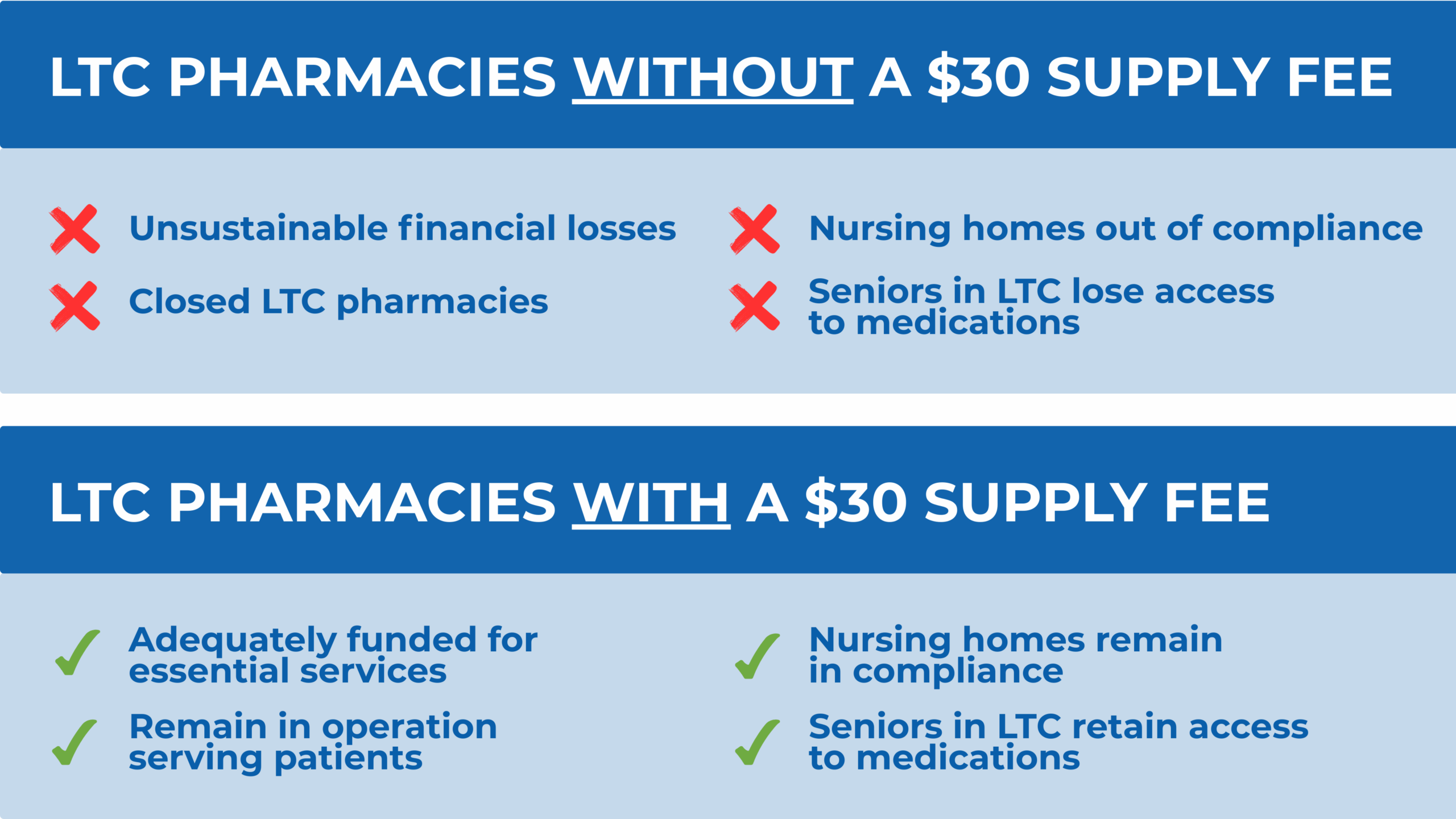SCPC advocates on behalf of long-term care (LTC) pharmacies and the more than two million patients they serve in nursing homes, assisted living and other facilities across the country. The most pressing issue facing the LTC pharmacy sector today is addressing the looming crisis that will result if Congress or the Administration fails to take action in support of the Preserving Patient Access to Long-Term Care Pharmacies Act (H.R. 5031), or the LTC Pharmacy Fix.
Unintended consequences stemming from Medicare Part D drug price negotiations set to take effect on January 1, 2026, inadvertently threaten the future of many LTC pharmacies. SCPC, our more than 300 pharmacy members, and millions of patients in long-term care across the country need help today!

TAKE ACTION – YOUR VOICE MATTERS:
LTC Pharmacies Need a Sustainable Payment Model
Please send a message to your Member of Congress urging them to support the Preserving Patient Access to Long-Term Care Pharmacies Act (H.R. 5031). This critical legislation will allow LTC pharmacies to continue providing essential medications and pharmacy services to seniors and other patients in long-term care when new Medicare negotiated drug prices take effect in January of 2026.
Congress Must Act Now!
Pass the Preserving Patient Access to Long-Term Care Pharmacies Act (H.R. 5031)!
Lower prescription drug prices is a good thing for seniors. However, Medicare Part D drug price negotiations established under the Inflation Reduction Act (IRA) will have unintended consequences on long-term care (LTC) pharmacies’ ability to provide essential medications and pharmacy services to America’s more than two million LTC residents.
Congress must act now to pass the Preserving Patient Access to Long-Term Care Pharmacies, H.R. 5031, to safeguard care for patients in nursing homes, assisted living and other long-term care settings.
THE ISSUE:
When negotiated drug prices take effect on January 1, 2026, LTC pharmacies will face unsustainable revenue loss on brand-name medications that are included under the Medicare Part D price negotiation program. LTC pharmacies already lose money on acquiring and dispensing the most commonly prescribed medications for seniors, so they rely on reimbursement for brand-name drugs to sustain their operations.
Given that 8 out of the 10 drugs selected for drug price negotiations in January of 2026 are brand name medications heavily used in LTC settings, many LTC pharmacies (up to 60%) could be forced to reduce services or close locations, particularly locations that serve rural areas, cutting off critical medication access for millions of vulnerable patients.

THE SOLUTION:
The Preserving Patient Access to Long-Term Care Pharmacies Act (H.R. 5031), commonly known as the LTC Pharmacy Fix, is must-pass legislation to save senior access to essential medications and pharmacy services.
The bill creates a two-year, targeted $30 supplemental supply fee for Part D drugs included in the Maximum Fair Price (MFP) category under the Medicare Price Negotiation Program— effective in 2026 and 2027, exactly when LTC pharmacies will be under the most financial pressure. Modeled after an existing Medicare Part B supply fee created when Part D was enacted, this bipartisan bill is a proven solution.
This legislation will ensure that nursing homes, assisted living, and other long-term care facilities, along with the seniors they serve, will maintain access to essential medications and pharmacy services that are only provided by LTC pharmacies. These specialized services include 24/7 medication access enhanced medication management, consultant pharmacy services, and other critical patient care that protects both quality of life and safety.

